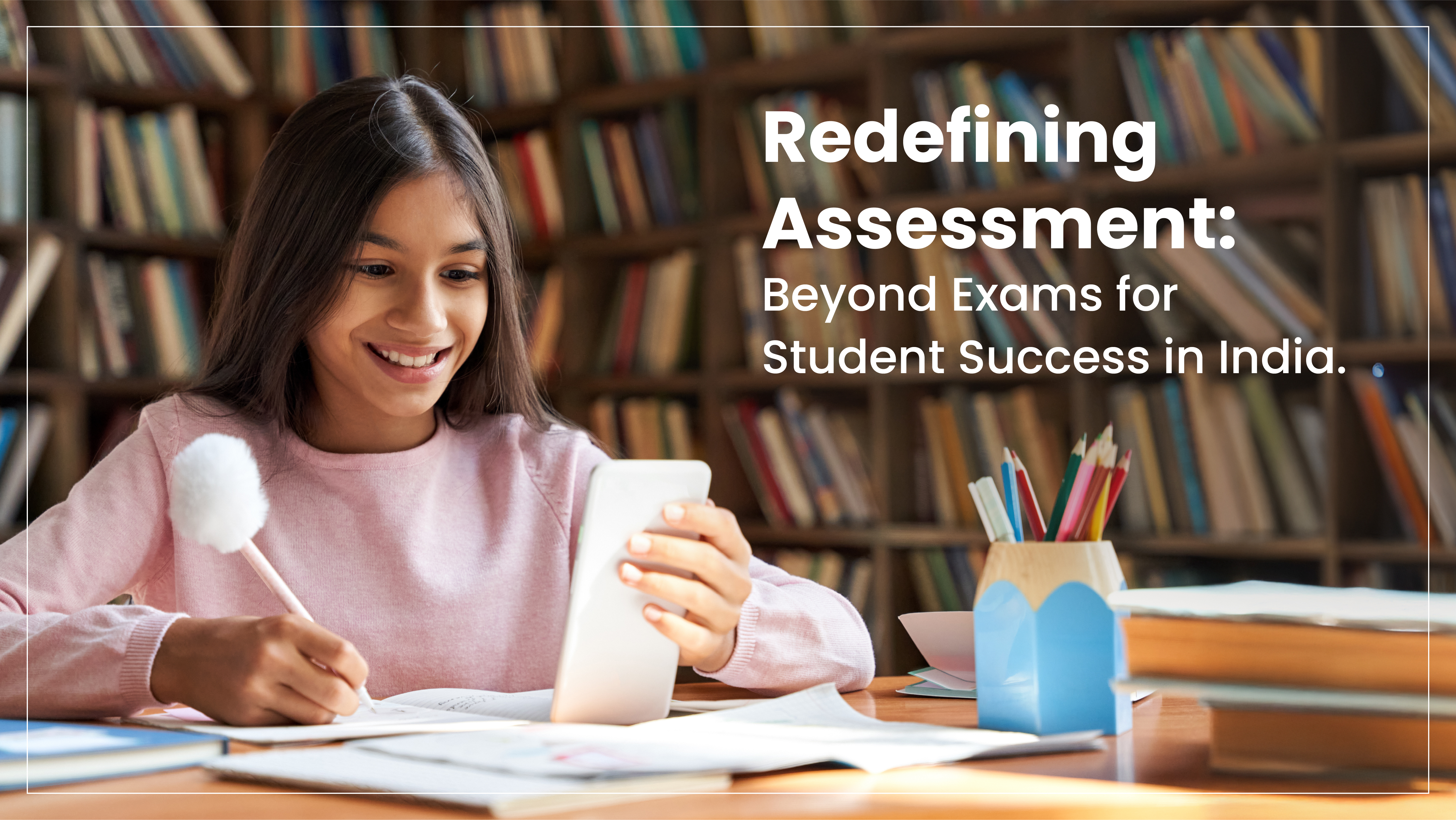For generations, exams and tests have served as the bedrock of student evaluation in India. Students diligently prepare to excel in standardised tests, hoping their scores reflect not only their knowledge but also their potential for future success. Yet, as the world progresses, the concept of success itself evolves, prompting educators and policymakers in India to reimagine assessment practices. Moving beyond the rigid framework of exams, schools are now seeking ways to address broader skills, such as emotional intelligence, creativity, problem-solving, collaboration, and critical thinking—all essential for thriving in an increasingly complex world.
The Limitations of Traditional Exams
Traditional assessments long measure a student’s grasp of specific subjects. However, these exams, often designed to test rote memory and surface-level understanding, overlook a wealth of valuable skills that contribute to a student’s growth and success. When the focus remains solely on exams, students who excel in areas like creativity or strategic problem-solving often go unrecognised, limiting both their development and self-confidence.
In the Indian context, the reliance on standardised testing fosters an intense competitive environment. Many students experience pressure and anxiety from a young age, focusing more on scoring high marks than truly engaging with their learning. This approach does not mirror the demands they will encounter in higher education or the workplace, where adaptability, resilience, and collaboration often hold more value than memorised facts.
A Multifaceted Approach: Understanding the Full Scope of Students as a Whole
Shifting away from an exam-centric mindset is not about lowering standards but broadening them. An all-encompassing complete evaluation for students recognises that they are more than the sum of their marks. This approach encourages educators to consider a variety of skills and competencies beyond academic knowledge, focusing on:
1. Emotional Intelligence: How well students understand and manage their emotions is vital for personal and professional relationships.
2. Creativity: Thinking outside the box and approaching problems innovatively is essential across fields such as engineering, arts, business, and technology.
3. Problem-Solving Skills: Real-world problems are rarely straightforward, so helping students develop critical thinking and resilience prepares them for complex challenges.
4. Collaboration: Working effectively with others is invaluable in nearly every career and is a fundamental skill for community building.
This complete evaluation for students could redefine success in Indian education, fostering inclusivity and supporting diverse abilities and aspirations.
Alternatives to Traditional Exams
As the conversation around alternative assessments in education gains momentum, several new methods are emerging, each offering unique insights into student growth and capability:
1. Collaborative Learning: Peer or group assessments promote a collaborative learning environment. Evaluating each other’s work helps students value diverse perspectives and enhances their critical thinking skills. Collaborative Learning proves especially effective in project-based learning, where students bring different strengths to group work.
2. Project-Based Assessments: Projects allow students to explore topics in-depth, applying their knowledge creatively and practically. For instance, a science project could require research, experimentation, and a presentation of findings. These assessments provide a comprehensive view of a student’s knowledge, problem-solving abilities, and communication skills.
3. Continuous Assessment: Rather than one high-stakes exam, continuous assessment evaluates students’ progress over time through various tasks, quizzes, and activities. This method reduces exam-related stress and enables teachers to provide timely feedback, allowing students to make gradual improvements.
Implementing Change: Challenges and Solutions
Transitioning to new assessment methods presents challenges, especially within India’s traditional education system. Teachers may require training in multifaceted assessments, demanding both time and resources. Additionally, many parents and students, accustomed to seeing exams as the main indicator of success, may initially resist change.
Yet, change is not only possible but essential. By incorporating a balance of traditional exams and non-traditional learning approaches, we create a more holistic assessment system. Educating parents on the long-term benefits of these alternative assessments in education can help them see the value these methods bring to their child’s development.
The Path Forward
India’s National Education Policy (NEP) 2020 has already started to lay the groundwork for more progressive, student-centred learning models. At Narayana, we are already pioneering innovative approaches to empower students, providing personalised attention through age-appropriate programmes that build a strong academic foundation and foster overall development. Our in-house initiatives, such as Soft Skills, nSports, and Disha for mental well-being, promote experiential learning and reduce exam stress.
Conclusion: A Future Beyond Exams
In a world that values innovation, resilience, and adaptability, traditional exams alone no longer capture the full scope of student potential. When success is measured not only by scores but by growth in emotional, intellectual, and social dimensions, students become better prepared to lead fulfilling lives, contribute meaningfully to society, and tackle the challenges that await them.
As we embrace this new vision of assessment, we ensure that education in India remains relevant, dynamic, and responsive to future generations’ needs—because at Narayana, your dreams are our dreams.
